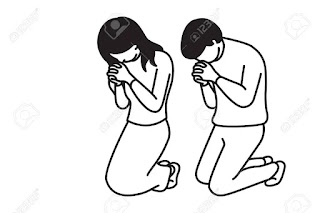1. What is yours now belonged to others
And what is yours now will go to
somebody else;
None can see destiny’s pulse
And what happens to you, who bothers?
Our lives insignificant specks in
endless tide
Of time which batters our ego and
pride.
2. The tender bloom of childhood which you
had
Melted like dew with growing years;
No more can you feel those innocent
smiles and tears;
You lost those realms of golden
fantasies so glad
What an unbridgeable gap between you
and that child!
Your mind, no more like blossoms
fresh and wild.
3. Through turbulent youth a few blunders
you made
Thy age, an excuse to act with renewed
delight;
None blamed thy negligence and none
did slight;
Like happy dreams of night, they slip
away and fade;
Those lovely forgiving intimate ties
You can’t find now and Time so quickly
flies.
4. You flaunted your vigour in reckless youth
You rambled free gloating on luxuries
full;
You yielded thoughtless to temptations’
pull;
You spared no time to think of vital
truths;
You cared little about consequences in
store
In worldly joys you sank down more and
more.
5. As family burdens with age did bend you
down
Your cuckoo dreams swept off like dust
In gust of worldly ways and passion’s
thirst;
Must yield to burdens you have to bear
The thrust of your deeds with others you
cannot share.
6. As old
age looms, your strength slowly wanes
You have to pay for your wayward ways
past;
Your youth and beauty have to yield at
any cost;
Your status and power cannot retard or
restrain
No more can you indulge in pleasures
vain
You spend a lot on medical bills, but can’t complain.
7. Your splendour, glory, wealth and power
Vanish in a flash just like a dream
No more can you wield authority supreme;
Your bonds of which you boast tumble like
a tower;
The cloud of uncertainty hangs before
The effects of change you can resist no more.
8. Just like leaves in winter turn sick-pale
and fade
Old age weakens our limbs and brain as
well;
A gradual change and how it happens none
can foretell
Our worldly possessions, mere dancing
shades;
So many unforeseen complaints attack our
health
Our past vicious habits, like thieves,
impact in stealth.
9. Our closest kin depart to leave mere
memories past
Our dearest bonds will not forever last;
Even our dearest children have to live
apart
To shoulder their own tasks at any cost;
What happens to your family’s privilege
and pride
When they act free and not by rules abide?
10. In tide of time of what you assume as yours
Turns weak, wrinkled and not so well it
seems;
Irreversible change you cannot redeem;
Your body loses its vital force and
living powers;
What you assume as yours-nothing remains
at last
Your power and wealth all gone;
tell me, what is yours?
********************
31st May, 2022 Somaseshu Gutala










